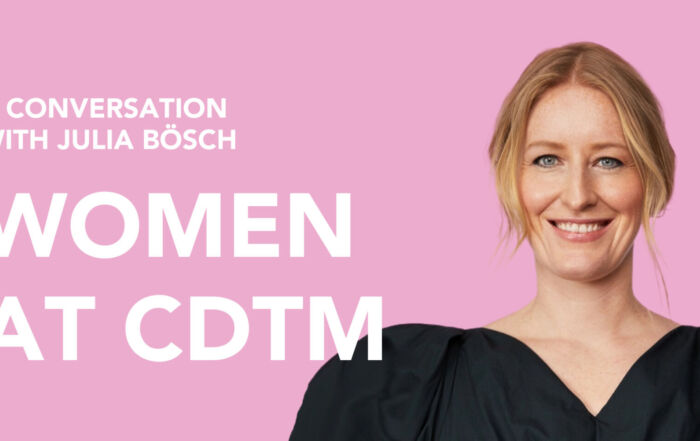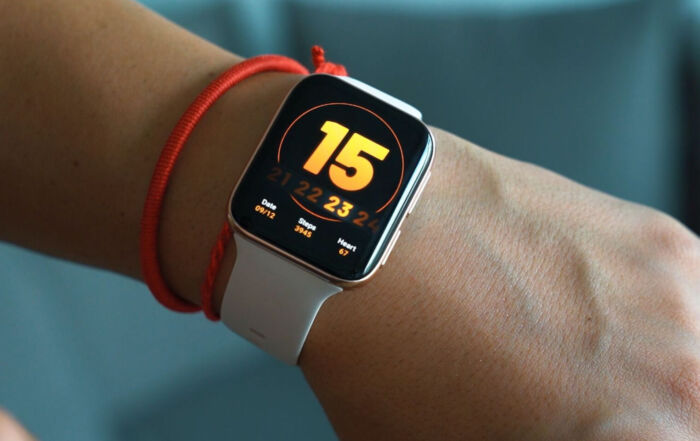One of the three main courses at CDTM is the Entrepreneurship Laboratory (eLab). The eLab is a project-based course of twelve weeks focusing on entrepreneurship for students. The student teams answer strategic business questions ranging from market entry strategy to a new pricing strategy for a SaaS product. To provide the students with the required skill set and best-practice examples, they are guided by the course instructors and external coaches from top strategy consultancies like McKinsey & Company, the Boston Consulting Group and Bain & Company.
As any other course at the CDTM, eLab is conducted in cooperation with a project partner. In the last semester, one of these project partners was Ebenbuild. Ebenbuild is a Medtech startup from Munich that emerged from years of research from the Institute for Computational Mechanics at TUM’s Department of Mechanical Engineering.
About Ebenbuild
Ebenbuild develops a technology that will improve the treatment of the lung disease Acute Respiratory Distress Syndrome (ARDS).
In the course of ARDS, parts of the lung collapse, become inflamed or are filled with fluid, making natural breathing impossible. Eventually, this can deprive organs of the oxygen they need to function and cause systemic inflammations which lead to multi-organ failure and death.
Mechanical ventilation and supportive therapies are the mainstays of treatment. Since every lung and its pathological condition caused by ARDS are different, ventilation settings have to be highly personalized. Currently, ARDS patients in intensive care face substantial health risks due to trial&error practices for determining their ventilation settings. Ebenbuild strives to lower these risks by computing highly patient-specific ventilation settings using a digital twin of a patient’s lung, which is generated from computed tomography images. As a result, Ebenbuild hopes to improve survival and recovery rates. Additionally, hospital staff will be relieved and treatment costs will be reduced.
CDTM and Ebenbuild – a strategy consulting project
Currently, Ebenbuild is funded by the “EXIST-Forschungstransfer” program of the Federal Ministry of Economic Affairs and Energy. Due to ongoing development and soon-to-start clinical studies, market entry is planned in five years. This leaves a substantial time period to exploit further potential of the existing technological stack.
That is where CDTM comes in: in the context of a 12-week project, a team of four students from diverse backgrounds ranging from business over politics and informatics to architecture, identified and evaluated use cases for a (sub-)product offering of Ebenbuild’s technology.
The project consisted of three phases: desk research and longlist generation, expert interviews and shortlist generation, and, finally, a market analysis for the use cases of the short list.
In a first step, possible application fields were identified by conducting desk research. In an ideation workshop with the project partner, a longlist of ten prevalidated use cases was developed. Subsequently, the use cases were evaluated based on criteria jointly defined with the project partner. This effort-payoff-survey helped to prioritize the use cases and to
identify the most important experts for validation. In the next step, the team conducted several interviews with experts in different areas, ranging from physicians and nurses to experts in medical device classification. In conducting the interviews, the use cases’ market need could be validated or disproved and valuable insights for the team as well as the project partner were generated. Furthermore, five additional use cases emerged. Based on the experts’ insights and with the help of the effort-payoff survey, the student team derived a shortlist including three highly interesting use cases that were subject to further analysis. Through further expert interviews and desk research, the use cases were enriched with market data on both size and competitors. Moreover, a qualitative pro- and contra-analysis for each use case was performed. Based on this data, the student team gave a well-founded recommendation on which use cases to pursue and what steps Ebenbuild should take next .
Entrepreneurship for Students
Besides creating valuable insights for the project partner, the students themselves learned a lot about how to tackle strategic business questions. Even though the students organized themselves fully autonomously, they received professional support throughout the project. During weekly skill building sessions and additional coaching, the students were equipped with the necessary knowledge and tools to work on the project. Additionally, they were guided and coached individually by the course instructors and external experts from top strategy consultancies like McKinsey & Company, the Boston Consulting Group and Bain & Company. By cooperating with an early-stage tech startup like Ebenbuild, the students got insights into challenges entrepreneurs face when founding startups. That way, the project combined two seemingly very different business fields – strategy consulting and entrepreneurship – and provided the student team with many learnings.
The CDTM students enjoyed the collaboration with Ebenbuild and are excited to follow Ebenbuild’s mission “to transform healthcare through digital technology”.







